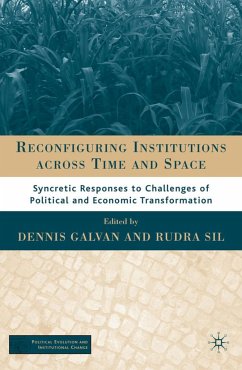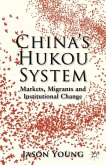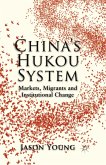'Dennis Galvan and Rudra Sil have assembled an exceptionally fine volume. Reconfiguring Institutions Across Time and Space is thoughtful, well-written and down-right interesting. Their focus on 'Institutional Syncretism' makes a significant advance in our understandings of institutional change, just as each of the substantive chapters gives us remarkably deep analyses of particular countries undergoing institutional transformation. I highly recommend this book.'
- Sven Steinmo, European University Institute (EUI)'This is a timely book. It has long been an open secret that the wave of new institutionalist analyses have begun to founder on the problem of how to explain change. Stuck in a language of constraint, institutionalism often looks on silently as actors redesign the rules that are intended to constrain them. Galvan, Silandtheir collaborators present here an extremely innovative solution to this problem in the form of "syncretism". Emphasizing creative agency and focusing on processes of institutional recomposition in a broad array of both developing and developed country contexts, this volume makes great strides toward the development of an alternative, constructivist, and open-ended form of institutional analysis. Highly recommended for anyone interested in problems of development and change.'
- Gary Herrigel, Professor of Political Science, University of Chicago
- Sven Steinmo, European University Institute (EUI)'This is a timely book. It has long been an open secret that the wave of new institutionalist analyses have begun to founder on the problem of how to explain change. Stuck in a language of constraint, institutionalism often looks on silently as actors redesign the rules that are intended to constrain them. Galvan, Silandtheir collaborators present here an extremely innovative solution to this problem in the form of "syncretism". Emphasizing creative agency and focusing on processes of institutional recomposition in a broad array of both developing and developed country contexts, this volume makes great strides toward the development of an alternative, constructivist, and open-ended form of institutional analysis. Highly recommended for anyone interested in problems of development and change.'
- Gary Herrigel, Professor of Political Science, University of Chicago









